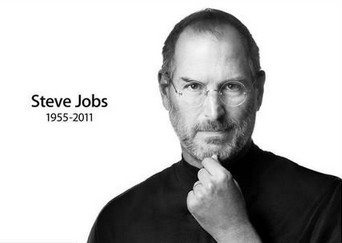Robert Friedland
羅伯特弗里德蘭
In order to raise some cash one day, Jobs decided to sell his IBM Selectric typewriter. He walked into the room of the student who had offered to buy it only to discover that he was having sex with his girlfriend. Jobs started to leave, but the student invited him to take a seat and wait while they finished. “I thought, ‘This is kind of far out,’” Jobs later recalled. And thus began his relationship with Robert Friedland, one of the few people in Jobs’s life who were able to mesmerize him. He adopted some of Friedland’s charismatic traits and for a few years treated him almost like a guru—until he began to see him as a charlatan.
有一次,為了籌集一些現(xiàn)金,喬布斯決定賣掉自己的IBM電動(dòng)打字機(jī)。他走進(jìn)之前答應(yīng)要買的那個(gè)學(xué)生的宿舍,發(fā)現(xiàn)對(duì)方正在和女友云雨。喬布斯準(zhǔn)備離開,但那個(gè)學(xué)生請(qǐng)他坐下,等他們結(jié)束。“我當(dāng)時(shí)想:‘這太離譜了吧。’”喬布斯后來回憶說。他和羅伯特·弗里德蘭(RobertFriedland)的友誼也從此開始。羅伯特是喬布斯一生中少有的能以自己的魅力蠱惑他的人。喬布斯吸收了羅伯特身上一些獨(dú)具魅力的特質(zhì),有幾年的時(shí)間甚至將他視為自己的精神導(dǎo)師——直到后來把他看做吹牛欺詐的髙手。
Friedland was four years older than Jobs, but still an undergraduate. The son of an Auschwitz survivor who became a prosperous Chicago architect, he had originally gone to Bowdoin, a liberal arts college in Maine. But while a sophomore, he was arrested for possession of 24,000 tablets of LSD worth $125,000. The local newspaper pictured him with shoulder-length wavy blond hair smiling at the photographers as he was led away. He was sentenced to two years at a federal prison in Virginia, from which he was paroled in 1972. That fall he headed off to Reed, where he immediately ran for student body president, saying that he needed to clear his name from the “miscarriage of justice” he had suffered. He won.
 弗里德蘭比喬布斯大了4歲,但還在讀本科。他的父親是奧斯維辛集中營的幸存者,后來在芝加哥成為了一名成功的建筑師。弗里德蘭原本是在緬因州的鮑登文理學(xué)院讀書的。但是讀大二的時(shí)候,他因?yàn)樯砩蠑y帶了價(jià)值125000美元的24000片迷幻藥而被捕。當(dāng)?shù)貓?bào)紙拍到了他被帶走時(shí)的現(xiàn)場照片:一頭及肩的波浪金發(fā),正沖著攝影師微笑。他被判在弗吉尼亞州的一座聯(lián)邦監(jiān)獄服刑兩年,于1972年被假釋。那年秋天他來到了里德學(xué)院,立刻開始競選學(xué)生會(huì)主席,他宣稱需要洗刷“司法不公”強(qiáng)加給自己的罪名。他贏得了選舉。
弗里德蘭比喬布斯大了4歲,但還在讀本科。他的父親是奧斯維辛集中營的幸存者,后來在芝加哥成為了一名成功的建筑師。弗里德蘭原本是在緬因州的鮑登文理學(xué)院讀書的。但是讀大二的時(shí)候,他因?yàn)樯砩蠑y帶了價(jià)值125000美元的24000片迷幻藥而被捕。當(dāng)?shù)貓?bào)紙拍到了他被帶走時(shí)的現(xiàn)場照片:一頭及肩的波浪金發(fā),正沖著攝影師微笑。他被判在弗吉尼亞州的一座聯(lián)邦監(jiān)獄服刑兩年,于1972年被假釋。那年秋天他來到了里德學(xué)院,立刻開始競選學(xué)生會(huì)主席,他宣稱需要洗刷“司法不公”強(qiáng)加給自己的罪名。他贏得了選舉。
Friedland had heard Baba Ram Dass, the author of Be Here Now, give a speech in Boston, and like Jobs and Kottke had gotten deeply into Eastern spirituality. During the summer of 1973, he traveled to India to meet Ram Dass’s Hindu guru, Neem Karoli Baba, famously known to his many followers as Maharaj-ji. When he returned that fall, Friedland had taken a spiritual name and walked around in sandals and flowing Indian robes. He had a room off campus, above a garage, and Jobs would go there many afternoons to seek him out. He was entranced by the apparent intensity of Friedland’s conviction that a state of enlightenment truly existed and could be attained. “He turned me on to a different level of consciousness,” Jobs said.
弗里德蘭曾經(jīng)聽過《此時(shí)此地》的作者拉姆·達(dá)斯導(dǎo)師在波士頓的一次演講,他和喬布斯、科特基一樣深深迷戀著東方精神。1973年的夏天,弗里德蘭去印度拜訪了拉姆·達(dá)斯的印度教導(dǎo)師——尼姆·卡羅里大師(NeemKaroliBaba),也就是信眾們所熟知的馬哈拉杰-吉(Maharaj-ji)。弗里德蘭那年秋天從印度回來后,已經(jīng)起了一個(gè)宗教名字,走到哪里都是一雙涼鞋和一身飄逸的印度長袍。他在校園外租了一個(gè)房間,就在一個(gè)車庫頂上,很多個(gè)下午,喬布斯都會(huì)去那里找他。弗里德蘭確信自我啟蒙的狀態(tài)確實(shí)存在,并且可以通過努力而獲得,這讓喬布斯十分著迷。“他讓我達(dá)到了一個(gè)全新層次的覺悟。”喬布斯說。
Friedland found Jobs fascinating as well. “He was always walking around barefoot,” he later told a reporter. “The thing that struck me was his intensity. Whatever he was interested in he would generally carry to an irrational extreme.” Jobs had honed his trick of using stares and silences to master other people. “One of his numbers was to stare at the person he was talking to. He would stare into their fucking eyeballs, ask some question, and would want a response without the other person averting their eyes.”
弗里德蘭也覺得喬布斯十分有魅力。“他總是赤著腳走來走去,”他后來回憶說,“讓我感到震撼的是他的激情。他只要對(duì)一樣?xùn)|西感興趣,就會(huì)把這種興趣發(fā)揮到非理性的極致狀態(tài)。”喬布斯熟練掌握了利用凝視和沉默來征服別人的技巧。“他的招數(shù)之一就是死死盯著正在和他講話的人。他會(huì)一直注視著對(duì)方的眼球,然后問一個(gè)問題,要對(duì)方在不回避他目光的情況下回答。”
According to Kottke, some of Jobs’s personality traits—including a few that lasted throughout his career—were borrowed from Friedland. “Friedland taught Steve the reality distortion field,” said Kottke. “He was charismatic and a bit of a con man and could bend situations to his very strong will. He was mercurial, sure of himself, a little dictatorial. Steve admired that, and he became more like that after spending time with Robert.”
據(jù)科特基說,喬布斯的一些性格特質(zhì)——包括一些伴隨他職業(yè)生涯的特質(zhì)——都是吸收自弗里德蘭。“弗里德蘭教給了史蒂夫現(xiàn)實(shí)扭曲力場,”科特基說,“他極富魅力,也會(huì)騙人,可以讓事態(tài)屈從于他的超強(qiáng)意志。他很機(jī)智,充滿自信,還有一點(diǎn)兒獨(dú)斷專行。史蒂夫很欽佩這些,他和羅伯特待在一起的時(shí)間久了之后,也變成了這個(gè)樣子。”
Jobs also absorbed how Friedland made himself the center of attention. “Robert was very much an outgoing, charismatic guy, a real salesman,” Kottke recalled. “When I first met Steve he was shy and self-effacing, a very private guy. I think Robert taught him a lot about selling, about coming out of his shell, of opening up and taking charge of a situation.” Friedland projected a high-wattage aura. “He would walk into a room and you would instantly notice him. Steve was the absolute opposite when he came to Reed. After he spent time with Robert, some of it started to rub off.”
喬布斯也從弗里德蘭身上學(xué)會(huì)了怎樣讓自己成為焦點(diǎn)。“羅伯特是個(gè)非常善于交際也非常有魅力的人,一個(gè)真正的推銷員,”科特基回憶說,“我第一次見到史蒂夫的時(shí)候,他羞澀又謙遜,非常內(nèi)斂。我想是羅伯特教會(huì)了他怎樣銷售產(chǎn)品,怎樣與別人交往,怎樣展現(xiàn)自我,怎樣控制局面。”弗里德蘭身上的氣場很強(qiáng)。“他走進(jìn)一個(gè)房間,別人立刻就會(huì)注意到他。史蒂夫剛剛來到里德學(xué)院的時(shí)候則恰恰相反。他跟羅伯特相處一段時(shí)間后,身上的羞澀開始逐漸褪去。”











